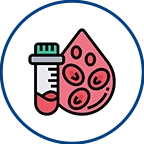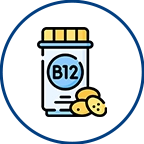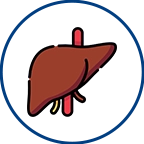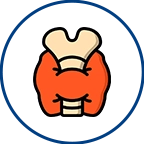Menstruation and Nutrition Foods to Ease Period Pain
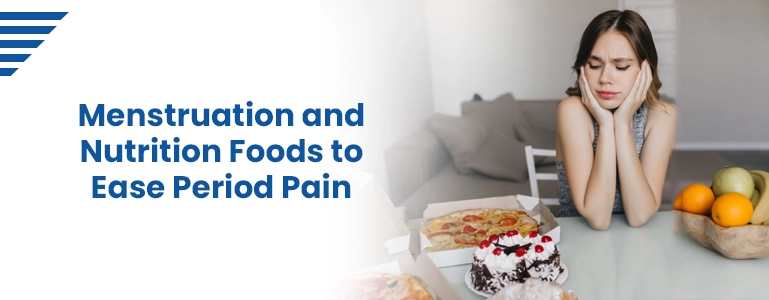
Menstruation is a natural part of a woman's life, but for many, it can be accompanied by uncomfortable symptoms, with period pain or menstrual cramps being one of the most common complaints. While over-the-counter pain relievers can help, some prefer a more natural approach to managing their discomfort. That's where nutrition comes into play. In this blog post, we'll explore how certain foods can ease period pain and make your menstrual cycle a little more manageable.
The Role of Nutrition in Managing Period Pain
Our diet greatly influences our general health, which can help us manage menstruation discomfort. The key lies in choosing foods that have anti-inflammatory properties, can alleviate muscle cramps, and help regulate hormonal fluctuations. Let's delve into some of these food options:
Home Sample Collection
Fruits and Vegetables
Bananas: Rich in potassium, bananas can help reduce water retention and bloating, common symptoms of PMS.
Berries: Packed with antioxidants, berries can combat inflammation and help reduce pain.
Leafy Greens: The iron found in kale, spinach, and other leafy greens is essential for preventing anaemia, a disease that can worsen period discomfort.
Omega-3 Fatty Acids
Fatty Fish: Salmon, mackerel, and trout are excellent sources of omega-3 fatty acids, which are renowned for being anti-inflammatory.
Flaxseeds and Chia Seeds: These seeds are also rich in omega-3s and can be easily incorporated into your diet through smoothies, yoghurt, or oatmeal.
Complex Carbohydrates
Whole Grains: Choose whole grains, which offer a slow release of energy and aid in controlling blood sugar levels, such as brown rice, quinoa, and oats.
Sweet Potatoes: Loaded with complex carbohydrates and fibre, sweet potatoes can curb sugar cravings and control mood swings.
Herbal Teas
Ginger Tea: Known for its anti-inflammatory and pain-relieving properties, ginger tea can relieve menstrual cramps.
Peppermint Tea: Peppermint can soothe digestive discomfort, including bloating and gas.
Calcium-Rich Foods
Dairy Products: If you're not lactose intolerant, dairy products like yoghurt and milk can provide calcium, which helps relax muscles and reduce cramps.
Non-Dairy Sources: If you prefer non-dairy options, consider fortified plant-based milk (e.g., almond milk) and leafy greens like collard greens.
Dark Chocolate
Yes, you read that right! Magnesium, included in dark chocolate, helps ease muscle cramping and improve mood.
Nuts and Seeds
Almonds: These nuts are packed with magnesium and healthy fats, offering a satisfying and nutritious snack during your period.
Pumpkin Seeds: Zinc-rich pumpkin seeds can help reduce pain and inflammation.
Conclusion:
While nutrition can't eliminate period pain, incorporating these foods into your diet can make your menstrual cycle more manageable. Remember that every person's body is different, so finding which foods work best for you may take trial and error. Additionally, maintaining a balanced diet year-round can lessen symptoms' intensity and aid in regulating the menstrual cycle. So, the next time your period arrives, consider reaching for some of these nourishing options to help ease the discomfort and make your period more tolerable.
Frequently Asked Questions
Why do some foods help alleviate period pain?
Some nutrients and substances found in food have anti-inflammatory, muscle-relaxing, or hormone-regulating effects. These characteristics can lessen how painful period cramps and other monthly discomforts are.
How soon before my period should I start incorporating these foods into my diet?
Including these foods in your regular monthly diet is a good idea. This can help maintain balanced hormone levels and reduce the risk of severe menstrual symptoms. However, consuming them during your period can provide immediate relief from pain and discomfort.
Are there any foods I should avoid during my period?
Some foods may exacerbate menstrual symptoms. These include caffeine, sugary foods, and highly processed or salty snacks. Reducing your intake of these items during your period might help alleviate discomfort.
Can I rely solely on nutrition to manage period pain, or should I still use pain relievers?
While a balanced diet can be helpful, it may not eliminate severe pain for everyone. Many people find that combining dietary changes and over-the-counter pain relievers works best. Always seek the opinion of a healthcare professional for specific recommendations.
What other lifestyle changes can complement a period pain-relief diet?
Maintaining regular physical activity, staying hydrated, managing stress through relaxation techniques, and getting enough sleep are all crucial factors that can complement your efforts to manage period pain.
Is there a specific diet plan I should follow during my period, or can I incorporate these foods into my regular meals?
You don't need a specific diet plan for your period, but incorporating these pain-relieving foods into your regular meals and snacks can be beneficial. Think of it as a long-term strategy to support your overall menstrual health.
Are there any side effects or potential allergies associated with the recommended foods?
Some individuals may have allergies or sensitivities to certain foods. It's essential to be aware of any allergies and choose foods that are safe for you. Also, consult a healthcare professional if you have concerns about specific foods.
Can I rely on supplements instead of incorporating these foods into my diet?
While supplements can be helpful, obtaining essential nutrients from whole foods is generally better. Whole foods offer a broader range of nutrients and fibre, which can benefit overall health.
How long should I expect to notice a difference in my menstrual symptoms through dietary changes?
The time it takes to see an improvement in menstrual symptoms can vary from person to person. Some may notice a difference within a few menstrual cycles, while others may take longer. Consistency in dietary changes is critical.
Can I consume these foods on a specific diet, such as vegan or gluten-free?
Many recommended foods are compatible with various dietary plans, including vegan and gluten-free diets. Plenty of plant-based and gluten-free options exist among the foods mentioned in the blog post.
Book Your Slot
Our Locations Near You in Hyderabad
3KM from Banjara Hills
1.9KM from Yusufguda
3KM from Madhura Nagar
5KM from Shaikpet
Profiles
- Cardiac Risk Profile
- Pituitary marker Profile
- Rheumatoid Arthritis Profile
- Dengue Fever Panel
- Lung Cancer Panel 1 Complete Molecular
- Gastroenteritis Screening Panel
- Thyroid Profile (T3,T4,TSH), Serum
- Pancreatic Marker Profile
- STD profile
- Androgen Profile
- Lipid Profile, Serum
- Pancreatic(acute)Profile
- PCOD Profile
Radiology
Pathology Tests
- Glucose Fasting (FBS),Sodium Fluoride Plasma
- Creatinine, Serum
- Glycosylated Hemoglobin (HbA1C)
- Vitamin B12 (Cyanocobalamin), Serum
- Thyroid Stimulating Hormone (TSH) Ultrasensitive, Serum
- Complete Urine Examination (CUE), Urine
- Liver Function Test (LFT),Serum
- Dengue (IgG & IgM), Serum
- Dengue Antigen (Ns1) Rapid, Serum
- C-Reactive Protein (CRP), Serum
- Widal (Slide Method), Serum
- Total IgE, Serum

